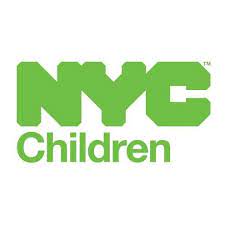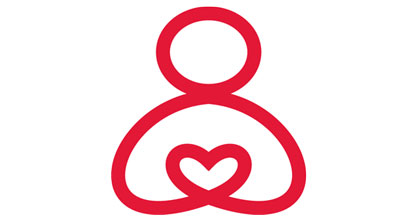Press Release: ACS Announces Awards Selected to Operate its ‘Family Assessment Program’
The New York Foundling was awarded contracts by the NYC Administration for Children’s Services to operate services within its Family Assessment Program, beginning July 1, 2021. We are proud to partner with ACS in providing support to families in our community, and to add our voice to the press release below:
 ADMINISTRATION FOR CHILDREN’S SERVICES ANNOUNCES AWARDS SELECTED TO OPERATE ITS ‘FAMILY ASSESSMENT PROGRAM’
ADMINISTRATION FOR CHILDREN’S SERVICES ANNOUNCES AWARDS SELECTED TO OPERATE ITS ‘FAMILY ASSESSMENT PROGRAM’
ACS “Family Assessment Program” Provides Support to Families With Young People In Crisis, Including: Truancy, Substance Misuse, Behavioral Challenges & Others
NEW YORK, NY – The New York City Administration for Children’s Services (ACS) today announced the organizations selected for awards to operate the Family Assessment Program (FAP). FAP provides support and interventions to families with youth who are at risk of out-of-home placement and present with behavioral challenges, such as: truancy, antisocial or criminal activities, substance misuse and other behavioral and mental health challenges. Each year, FAP serves approximately 3,500 families.
ACS selected five organizations for fifteen contracts: Children’s Aid, The Children’s Village, Community Mediation Services, JBFCS and New York Foundling.
“We understand the many challenges parents face when raising teenagers, and we want to be sure they receive the support they need to address adolescent behaviors,” said ACS Commissioner David A. Hansell. “Through the many services and supports, the Family Assessment Program helps to strengthen and further improve the lives of New York City’s families. These efforts – especially during the pandemic – are part of our mission to help families stay safely together.”
“Keeping teenagers at home, with family or with adults who love them, in school and engaged in community is the right approach,” said President and Chief Executive Officer at The Children’s Village, Jeremy Christopher Kohomban, Ph.D. “We are thrilled to partner with ACS in this very important effort.”
“Today’s teens are facing myriad challenges brought upon by the pandemic and remote learning, compounded by the impact of racial injustice that youth and families of color, particularly Black male teens, routinely face.” said Executive Vice President at Children’s Aid, Georgia Boothe. “Through the Family Assessment Program, we can bring much-needed crisis intervention strategies and family therapy to support teens by addressing trauma, preventing truancy, reducing and preventing involvement in the justice system, as well as increasing family communication and functioning. We are proud to partner with ACS in this work to ensure we can help youth and families learn and grow.”
“The New York Foundling is proud to provide evidenced-based preventive services to communities across the city as part of the Family Assessment Program,” said Senior Vice President of Child Welfare and Behavioral Health at The New York Foundling, Shannon Ghramm-Smith. “These services will ultimately decrease the family to child welfare pipeline, and the juvenile justice to criminal legal system pipeline. We look forward to working with ACS as we partner together through and beyond the pandemic, and will continue to think critically on innovative approaches to service delivery and continuing efforts to broaden tele-health and tele-care into our work.”
FAP plays a key role in fulfilling ACS’ ongoing commitment to improving outcomes for adolescents by connecting youth and families to appropriate interventions in times of crisis. ACS implemented FAP in 2002 to divert adolescents at risk of out-of-home placement through Family Court via the Persons in Need of Supervision (PINS) process. FAP and the providers of these services work to resolve crises, stabilize families, and connect youth to the support they need. They also offer caregivers the skills and tools they need to provide the guidance and structure that promote adolescent success. FAP has significantly reduced the number of youth entering foster care via the PINS process. In 2019, FAP prevented a PINS foster care placement for 98% of the families served. Approximately, 3,500 families accessed the FAP program and only 70 youth entered foster care through the PINS process.
Families who engage with FAP have youth that are generally between the ages of 11 and 18 years old, with the majority between the ages of 14 and 17. Some youth may have previous involvement with the juvenile justice system; and many may face several challenges, including truancy, illegal substance use, curfew noncompliance, negative behavior among peers, mental health concerns and absence without permission. In many instances, parents may need support in order to strengthen their ability to manage adolescents who are presenting with challenging behaviors, including their capacity to provide appropriate supervision and discipline.
The recently announced awards for FAP programs offer a continuum of service interventions targeted for families. The models procured in the current FAP Request for Proposals include:
- Family Stabilization (FS) programs that provide services tailored to the needs of families and children through case management, resource navigation, service referrals, parenting skills, and support with concrete needs, as well as regular in-home assessments of child safety and well-being. Within a 90-day period, staff support family members as they collectively develop a plan.
- Functional Family Therapy (FFT) provides therapy in the home with family therapy intervention for the treatment of violent, criminal, behavioral, school, and conduct problems with youth and their families. Both intra-familiar and extra-familial factors are addressed. Therapy takes place over an intensive four-month period including 30 one-hour therapeutic sessions.
- Multi-Systemic Therapy (MST) includes clinical features, such as enhanced use of motivational interviewing and skills-building with caregivers to increase impulse control and decrease dysregulation; high sense of urgency regarding child safety through weekly and long-term goal-setting and enhanced safety assessment protocols. Therapists visit the home multiple times per week and are available by phone 24 hours a day.
- Brief Strategic Family Therapy (BSFT) is a brief family intervention for children and youth with serious behavior problems and/or drug use. The intervention works well for families with behavior management challenges and problematic relationships. The intervention identifies patterns of family interaction and improves them to restore effective parental leadership and involvement with the youth. The treatment takes place in a combination of in-home, in-school and in-clinic sessions over the course of two to five months.
In addition to the recently procured models, the FAP program also continues to provide the Mentoring and Advocacy Program (MAAP) and Respite care. MAAP is an individualized strength and advocacy-based program that provides wraparound supports for youth between the ages of 12 and 18. Each youth is matched with a mentor whose focus is to provide guidance in developing better self-esteem, creating healthy relationships and making positive life choices. Respite Care is a non-mandated program where a family agrees to engage in services while the youth is temporarily placed in a foster home for 21 days.
ACS is committed to delivering services in a socially just and culturally competent manner. As part of the award process, the organizations selected to deliver FAP services are required to implement strategies to address equity. For instance, strategies may include: establishing a racial equity committee within the organization, conducting ongoing assessments of equity, developing strategies to address equity in hiring practices and more. Organizations are also required to adhere to ACS’ policies regarding the equitable and sensitive treatment of Lesbian, Bisexual, Transgender and Questioning (LGBTQ) youth and their families. Additionally, services through FAP are provided through staff who are responsive to the culture and character of the population served and are fluent in the languages spoken by participating youth and family members. Staff are also trained in balancing the task of delivering information to families while being responsive to their cultural beliefs and immediate circumstances.
For more information or to learn about the FAP services go to Family Assessment Program.
###

